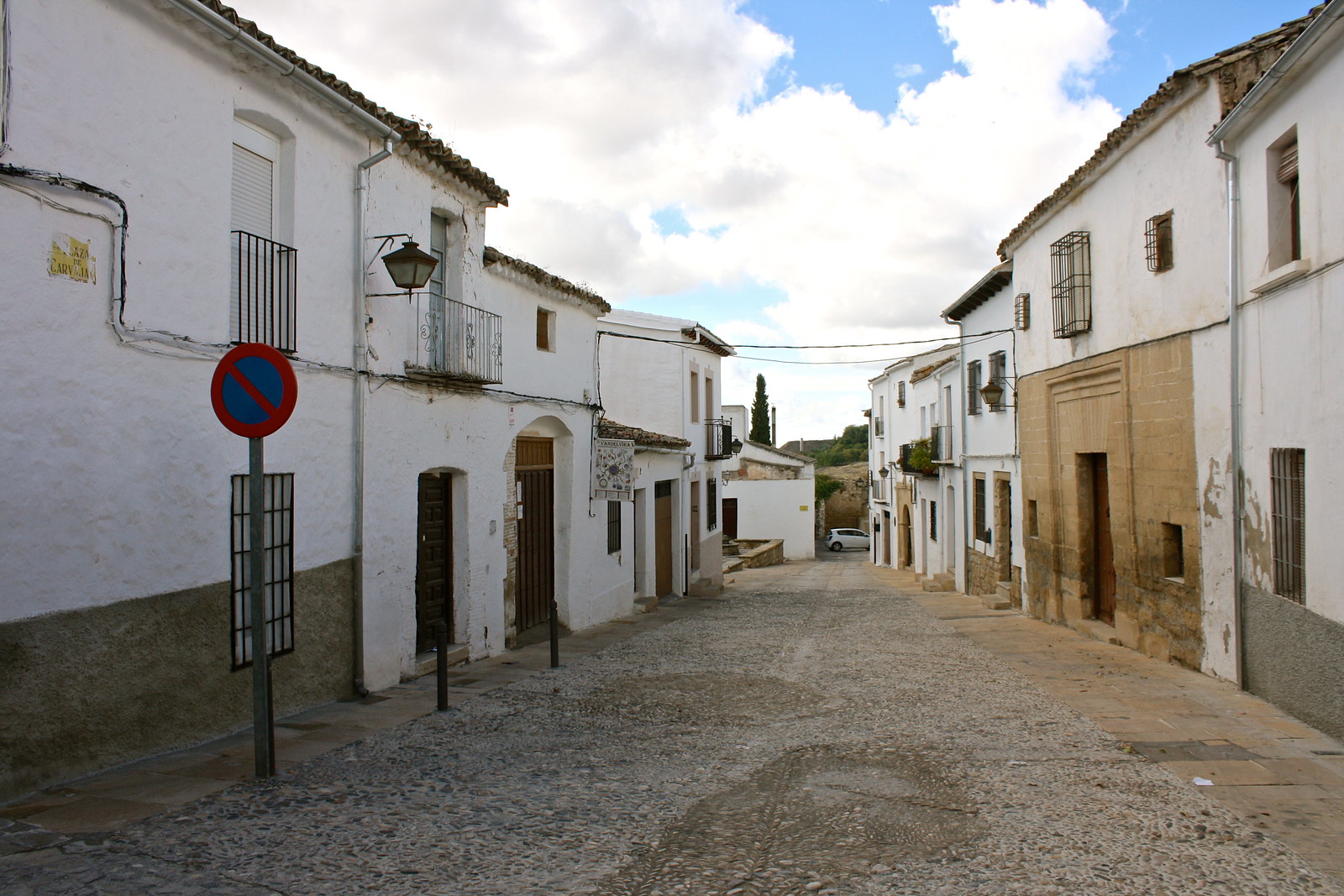7 Things You DON’T Have To Do as a Language Assistant in Spain
As a language assistant in Spain, you’ll be expected to show up to your school (or schools) and work in 12 hours of classes every week, helping your assigned teacher in bilingual courses. In return, you’ll receive 700€ a month, health insurance, and time off on national holidays (e.g., Christmas and Easter). This is the bare minimum of what is required of you to spend two-thirds of a year living and traveling abroad, but I think many assistants, myself included, often worry that we don’t live up to certain expectations of what an “ideal” language assistant should look like, whether that’s how they should work or what they should do in their spare time. I’d like to shoot down some common misconceptions people have about the program, many of which I once thought should have been true of myself until I wrote this post.
But this isn’t something you have to do as often as possible. I don’t know why you wouldn’t want to travel at least occasionally, but there’s no rule that says you have to always have your backpack ready to go for Thursday afternoon after work. For cryin’ out loud, there’s only so much you can do on 700€ a month!
I was talking about this with a fellow language assistant in town yesterday and she told me she wasn’t planning on traveling over Semana Santa (a sort of spring break the week leading up to Easter), and this is completely fine! I’m actually a little disappointed I’m peace-ing out for Morocco next week, because I’m going to miss out on all but one of the Semana Santa processions in Úbeda, and southern Spain is supposed to be the place to experience Easter in the country. My friend, however, will get to experience this cultural treasure by staying in town. There’s something to be said for really getting to know a place instead of dashing away every chance you get.
Let me be honest: it’s hard to meet new people in a small town, especially as a foreigner. Maybe it’s just me being an introvert, but I’ve had a difficult time getting to know real-life Spaniards outside of my teachers, although I have made some great friendships with the few language assistants in town.
Still, I’m not beating myself up over it because 1) people have said again and again that it takes a long time for Spaniards to open up and make you a part of their lives and 2) I’m leaving town in two months. Although the parents of one of my private English class students have really befriended me (they even let me stay with them at their home in La Mancha for two nights during Christmas break!), the people I’m going to be keeping most in contact with when I leave will probably be the teachers and the Americans.
Úbeda and the surrounding area got a pretty good bunch of language assistants this year, and I’ve regularly gone on trips and had potlucks with half a dozen of them. We’ve been each other’s support group throughout the year, bouncing travel ideas off each other and getting together for Thanksgiving.
But not all towns are so lucky; the people Spain places you with may not be the nicest people in the world, they might all come in knowing each other, or they could be second-years and already have their group of friends “set.” Or perhaps one of your goals for the year is 100% immersion in Spanish language and culture, and you feel that hanging out with English speakers might drag you down in your journey to fluency. These are all completely understandable and legitimate excuses. I don’t regret the friends I’ve made here through the program, but I probably could have spent more time in “immersion” than out of the water, if you catch my drift.
I personally love Spanish food, although it isn’t a terribly spicy or exciting cuisine (a là Indian or Mexican), but it’s based in combining lots of simple, fresh ingredients to create warm, savory meals. This summer I’m really going to miss being able to walk for ten minutes from my apartment and have in front of me a potato-omelet sandwich, free tapas, or fried churros to dip in molten chocolate.
But when you think about it, Spanish food can be rather unusual. Spaniards are gaga for their jamón, or cured ham, which they buy smelly whole legs of at the butcher shop and enjoy greasy thin slices of as an appetizer. Squid rings and octopus tentacles find their way into many dishes, and cured or pickled anchovies (as anchoas or boquerones, respectively) are a mainstay of the northern Spanish diet. If you’re a vegetarian or vegan, you will have trouble avoiding pork or pork-based products. And olives and olive oil are sacrosanct at every restaurant and home you go to.
Most language assistants end up giving private English classes to fund travels or weekends (or to pay for basic living expenses until they’re paid in the fall…but that’s another story). Two friends here work at the private Catholic school in town, and another friend in the next town over survived until her first paycheck by working at a language academy. One girl has 7 private classes with 26 students total! At first, this made me feel inadequate, since I only give classes to one fourth-grade boy and a flaky university-level girl.
However, this boils down to a decision you have to make on your own; you have to figure out what kind of lifestyle you want to have while in Spain and figure out how to get that kind of income. Travel blogger Liz Carlson went through the program and in her second year knew she wanted to live in an apartment all to herself, so she looked diligently for academy work and private classes and made it happen, raking in an extra 700€ a month or so. If you want to travel every weekend to far-away places or have nights on the town with friends, your language assistant salary won’t get you very far. Between an extra 100€ per month from classes and my paycheck, I can afford a major weekend trip about once a month and some tapas every now and then, but then again I’m also a homebody and try to live simply; your experience and preferences will certainly be different.
Full disclosure: I majored in Spanish in college and didn’t have that much trouble communicating when I studied abroad for a month in Costa Rica, so when I arrived in Spain in September, I was already at an advanced level of the language.
One month after I had moved into my apartment, my flatmate remarked that my Spanish had noticeably improved, which made me feel better about myself. However, Month Six of commuting with teachers to school is already almost over, and I still have great trouble trying to figure out what the heck they’re talking about, their accents are just that thick (in their defense, they usually talk about soccer which I do not follow at all).
It’s okay. Learning a language takes time, as does adjusting to another national or regional dialect.
Yeah, I know this leaves the post on a downer, but there’s always the small chance you might get placed in a terrible school or in a super-isolated small town, not get paid for months, get really homesick, or be unable to communicate via the Spanish you thought you had studied in school.
It may throw the Spanish bureaucracy into a dither, but it is perfectly alright if you drop out of the program partway through the year. Everyone in this program has a different experience, so there is no judging if your personal experience in Spain with your school was a disaster. It’s nothing out of the ordinary for folks to go home for Christmas and…never come back in January. There are plenty of waitlisted folks who would love to jump on the next flight to Madrid!
I hope this post has helped to make current language assistants worry less about their current situation, and correct some expectations that applicants may have.
What other expectations or worries about Spain’s language assistant program do you have? Comment below!
 |
| Street in Barcelona |
1) You don’t have to travel every weekend, month, or break
There’s this big pressure on participants in the program to take trips all the time, mainly because we’re so close to dozens upon dozens of amazing destinations, but also because of expectations from past study abroad experiences or language assistant bloggers (myself included). I think a lot of people get the impression from these blogs that traveling is all we do…when really, travel is just the easiest thing to blog about. |
| Plaza de la Virgen, Valencia |
But this isn’t something you have to do as often as possible. I don’t know why you wouldn’t want to travel at least occasionally, but there’s no rule that says you have to always have your backpack ready to go for Thursday afternoon after work. For cryin’ out loud, there’s only so much you can do on 700€ a month!
I was talking about this with a fellow language assistant in town yesterday and she told me she wasn’t planning on traveling over Semana Santa (a sort of spring break the week leading up to Easter), and this is completely fine! I’m actually a little disappointed I’m peace-ing out for Morocco next week, because I’m going to miss out on all but one of the Semana Santa processions in Úbeda, and southern Spain is supposed to be the place to experience Easter in the country. My friend, however, will get to experience this cultural treasure by staying in town. There’s something to be said for really getting to know a place instead of dashing away every chance you get.
2) You don’t have to exclusively hang out with Spanish people
 |
| Me playing futbolín (foosball) with teachers |
Let me be honest: it’s hard to meet new people in a small town, especially as a foreigner. Maybe it’s just me being an introvert, but I’ve had a difficult time getting to know real-life Spaniards outside of my teachers, although I have made some great friendships with the few language assistants in town.
Still, I’m not beating myself up over it because 1) people have said again and again that it takes a long time for Spaniards to open up and make you a part of their lives and 2) I’m leaving town in two months. Although the parents of one of my private English class students have really befriended me (they even let me stay with them at their home in La Mancha for two nights during Christmas break!), the people I’m going to be keeping most in contact with when I leave will probably be the teachers and the Americans.
3) You don’t have to hang out with other language assistants
 |
| Mirador de Santa Lucía, Úbeda |
Úbeda and the surrounding area got a pretty good bunch of language assistants this year, and I’ve regularly gone on trips and had potlucks with half a dozen of them. We’ve been each other’s support group throughout the year, bouncing travel ideas off each other and getting together for Thanksgiving.
But not all towns are so lucky; the people Spain places you with may not be the nicest people in the world, they might all come in knowing each other, or they could be second-years and already have their group of friends “set.” Or perhaps one of your goals for the year is 100% immersion in Spanish language and culture, and you feel that hanging out with English speakers might drag you down in your journey to fluency. These are all completely understandable and legitimate excuses. I don’t regret the friends I’ve made here through the program, but I probably could have spent more time in “immersion” than out of the water, if you catch my drift.
4) You don’t have to like Spanish food
 |
| Paella de mariscos |
I personally love Spanish food, although it isn’t a terribly spicy or exciting cuisine (a là Indian or Mexican), but it’s based in combining lots of simple, fresh ingredients to create warm, savory meals. This summer I’m really going to miss being able to walk for ten minutes from my apartment and have in front of me a potato-omelet sandwich, free tapas, or fried churros to dip in molten chocolate.
But when you think about it, Spanish food can be rather unusual. Spaniards are gaga for their jamón, or cured ham, which they buy smelly whole legs of at the butcher shop and enjoy greasy thin slices of as an appetizer. Squid rings and octopus tentacles find their way into many dishes, and cured or pickled anchovies (as anchoas or boquerones, respectively) are a mainstay of the northern Spanish diet. If you’re a vegetarian or vegan, you will have trouble avoiding pork or pork-based products. And olives and olive oil are sacrosanct at every restaurant and home you go to.
5) You don’t have to teach a bajillion private classes or work at an academy
 |
| Plaza de Carvajal, Úbeda |
Most language assistants end up giving private English classes to fund travels or weekends (or to pay for basic living expenses until they’re paid in the fall…but that’s another story). Two friends here work at the private Catholic school in town, and another friend in the next town over survived until her first paycheck by working at a language academy. One girl has 7 private classes with 26 students total! At first, this made me feel inadequate, since I only give classes to one fourth-grade boy and a flaky university-level girl.
However, this boils down to a decision you have to make on your own; you have to figure out what kind of lifestyle you want to have while in Spain and figure out how to get that kind of income. Travel blogger Liz Carlson went through the program and in her second year knew she wanted to live in an apartment all to herself, so she looked diligently for academy work and private classes and made it happen, raking in an extra 700€ a month or so. If you want to travel every weekend to far-away places or have nights on the town with friends, your language assistant salary won’t get you very far. Between an extra 100€ per month from classes and my paycheck, I can afford a major weekend trip about once a month and some tapas every now and then, but then again I’m also a homebody and try to live simply; your experience and preferences will certainly be different.
6) You don’t have to feel bad about how your Spanish is progressing
 |
| Sabiote at sunset |
Full disclosure: I majored in Spanish in college and didn’t have that much trouble communicating when I studied abroad for a month in Costa Rica, so when I arrived in Spain in September, I was already at an advanced level of the language.
One month after I had moved into my apartment, my flatmate remarked that my Spanish had noticeably improved, which made me feel better about myself. However, Month Six of commuting with teachers to school is already almost over, and I still have great trouble trying to figure out what the heck they’re talking about, their accents are just that thick (in their defense, they usually talk about soccer which I do not follow at all).
It’s okay. Learning a language takes time, as does adjusting to another national or regional dialect.
7) You don’t have to stay the whole year
 |
| Snow in La Mancha |
Yeah, I know this leaves the post on a downer, but there’s always the small chance you might get placed in a terrible school or in a super-isolated small town, not get paid for months, get really homesick, or be unable to communicate via the Spanish you thought you had studied in school.
It may throw the Spanish bureaucracy into a dither, but it is perfectly alright if you drop out of the program partway through the year. Everyone in this program has a different experience, so there is no judging if your personal experience in Spain with your school was a disaster. It’s nothing out of the ordinary for folks to go home for Christmas and…never come back in January. There are plenty of waitlisted folks who would love to jump on the next flight to Madrid!
I hope this post has helped to make current language assistants worry less about their current situation, and correct some expectations that applicants may have.
What other expectations or worries about Spain’s language assistant program do you have? Comment below!